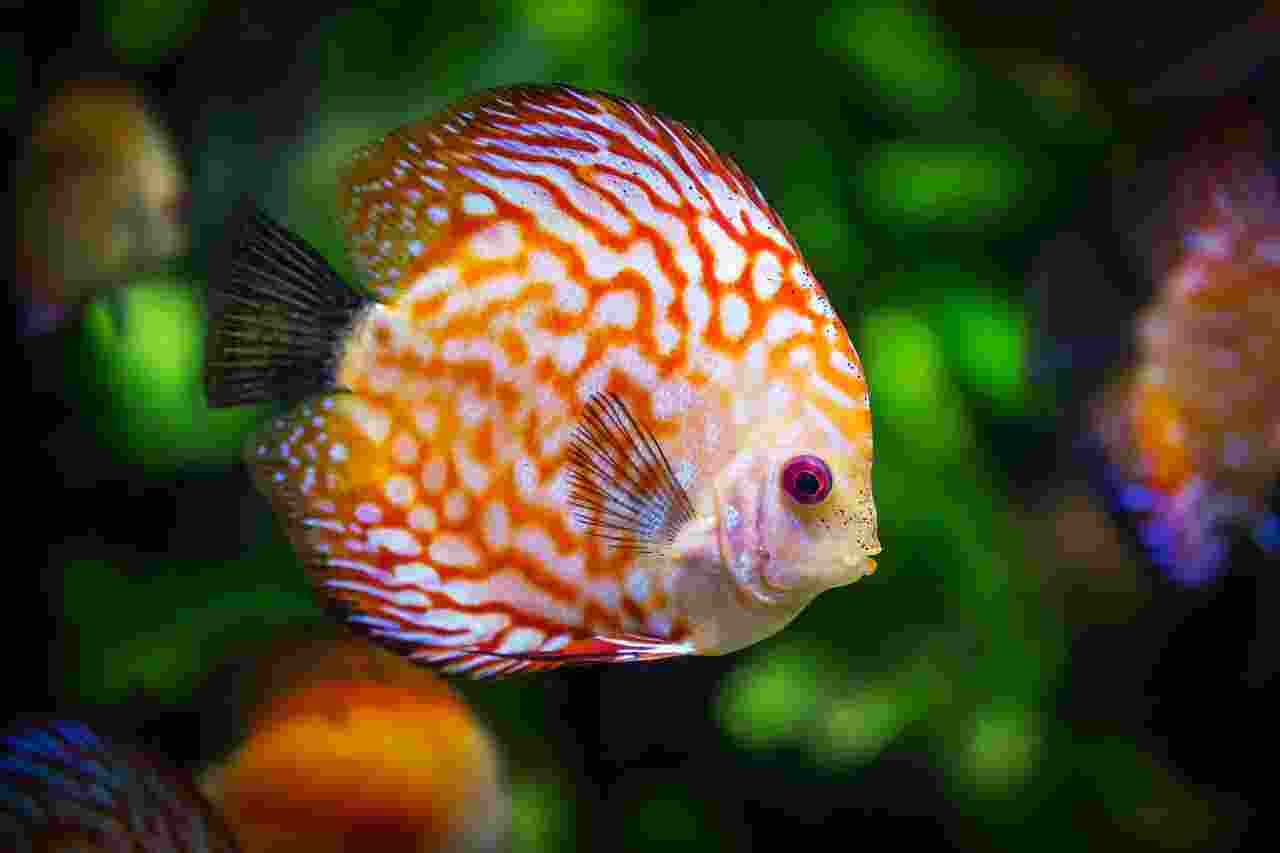Physical Address
304 North Cardinal St.
Dorchester Center, MA 02124
Physical Address
304 North Cardinal St.
Dorchester Center, MA 02124


Compared to other vertebrates, fish have relatively small brains. Fish have a brain of about one-fifth the size of a comparably sized bird or mammal’s brain. Despite having smaller and different-shaped brains, fish have been shown to possess long-lasting memories, the capacity to recognize and deliberately avoid pain and danger, seek out rewards, navigate mazes, and even use tools.
Visual regions dominate the fish brain because vision is so crucial for food search. Additionally, fish can detect substances dissolved in water thanks to their well-developed olfactory bulb. Fish do not have a fully formed cerebral cortex, which is where higher-order thinking occurs in primates and humans.
The evidence is mounting that fish experience a variety of emotions, such as fear, joy, relaxation, and playfulness, even if we may not be able to see it on their faces. We are aware that fish have pain and stress sensors, and that they, like humans, tend to avoid frightening situations.
You may be asking if fish also have a heart? And the answer is yes, fish do have a heart. But unlike the human heart that has four chambers, fish’s hearts have two chambers. The heart pumps blood into the gills. After passing through the muscles and organs, blood flows back toward their heart.
Fish have functioned brains and a whole neurological system that serves a variety of functions such as allowing them to experience pain and stress, supplying memory, and other functions, despite having a different anatomical structure from the brains found in other animals. Fish’s long-term memories enable them to maintain track of complicated social relationships. In many areas their cognitive abilities match or exceed those of ‘higher’ vertebrates, including non-human primates.
Fish are pretty intelligent, they can share knowledge with one another, recognize other fish they’ve interacted with before, understand their position within social hierarchies, and recall complex spatial layouts of their surroundings. Some studies indicate that some species of fish can recognize human faces!
Animal brain size often remains in proportion to its bodily size. In the animal realm, larger brains are typically associated with better cognitive performance. So, for instance, an African elephant has better cognitive capacities than a shrew.
The majority of fish have a brain that is roughly 1/15th the size of a bird or mammal of comparable size. On the other hand, the electrogenic elephantnose fish, an African freshwater fish, has the greatest brain-to-body oxygen consumption ratio and one of the largest brain-to-body weight ratios of any known vertebrate.
Another fish with a big brain size is the Manta rays. They have an enormous brain with particularly developed regions for communication, learning, and problem-solving.
The brain anatomy of a fish is divided into four sections:
Telencephalon: The anterior part of the brain, known as the telencephalon, houses the olfactory organs that process odors. Additionally, it houses the cerebrum, which supports the olfactory process. Fish with an exceptional sense of smell frequently have an enlarged telencephalon.
Diencephalon: Fish require diencephalon to sustain homeostasis, which is the condition of having a constant internal environment.
Within the brain, the diencephalon is the region directly behind the telencephalon. It contains a number of structures, including the pineal body, thalamus, hypothalamus, pituitary gland, and saccus vasculosus.
Most of the diencephalon’s components either produce hormones or serve as communication hubs for sending messages to other sections of the brain. Fish can sense light and darkness, for instance, thanks to the pineal body.
Mesencephalon: The main function of the mesencephalon, also known as the midbrain, which is located above the diencephalon, is to interpret visual information. It includes the deep white zone, periventricular gray zone, central zone, and superficial white zone.
Hindbrain: The cerebellum and brain stem, which are both found in the hindbrain and which function to assist fish maintain balance and coordinate sensory data by attaching the spinal cord to the brain, respectively, are both located there.
Fish do have brains and they can be far more intelligent than we can possibly measure. Their brain assists them in responding in accordance with the circumstances. Fish’s brain enables them to conduct all the activities required for survival in the aquatic environment. They have a relatively good memory, so they can distinguish between different objects, foods, people, and potential hazards.
You may be interesting in reading this article next: Do Fish Have Bones?